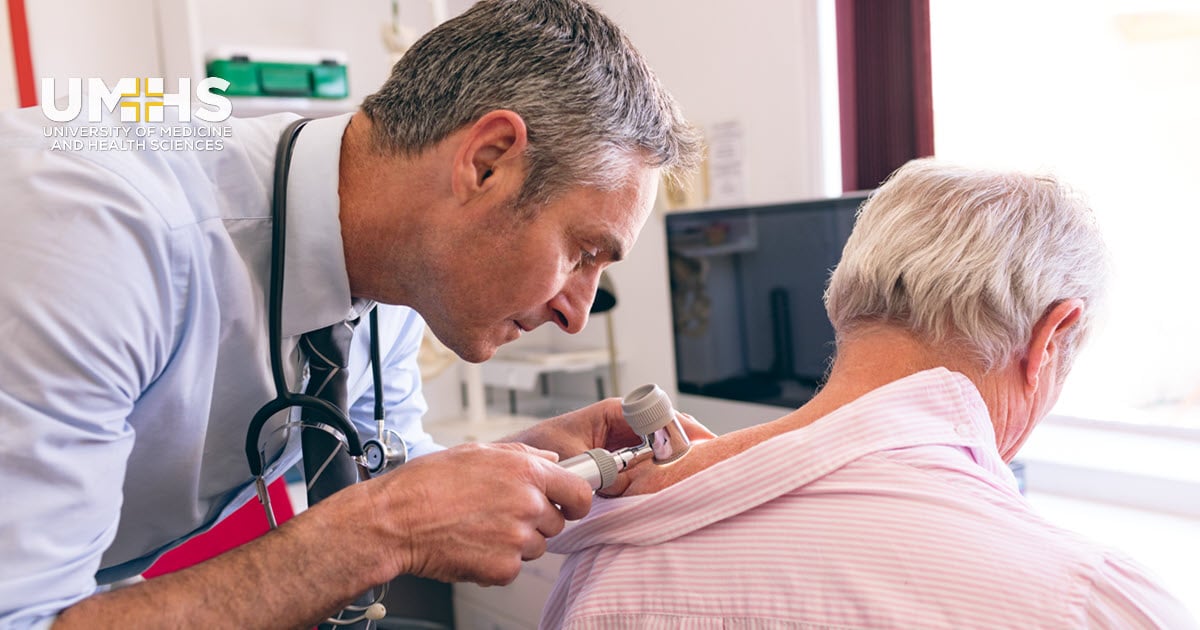Explore Advanced Chromadermatology Therapies with Melbourne's Best Specialists
Explore Advanced Chromadermatology Therapies with Melbourne's Best Specialists
Blog Article
Exploring the Role of Dermatologists in Diagnosing and Treating Diverse Skin Conditions With Accuracy
The area of dermatology plays a crucial role in identifying and managing a large range of skin problem that individuals might run into. From usual concerns like acne and eczema to more intricate problems such as cancer malignancy or unusual genetic skin diseases, dermatologists go to the center of detecting and dealing with these conditions with precision. With advancements in analysis devices and personalized treatment approaches, skin doctors are significantly able to customize interventions to specific clients' demands - Chromaderm Doncaster. Beyond the surface of skin problems exist interconnected elements that affect diagnosis and therapy results. Understanding the detailed web of hereditary, environmental, and way of living components that contribute to skin wellness is important for thorough care.
Importance of Early Discovery
Very early discovery of skin problems plays a critical duty in the reliable therapy and administration by skin specialists. Skin specialists depend on their know-how to identify refined modifications in the skin that may indicate underlying problems, such as skin cancer cells, dermatitis, psoriasis, or dermatitis.
In addition, very early detection enables dermatologists to customize therapy strategies to the specific requirements of each person. As an example, identifying skin cancer cells in its very early phases dramatically enhances the prognosis and increases the chance of effective treatment end results. By interfering early, skin specialists can also aid reduce symptoms, avoid worsening of the condition, and enhance the general quality of life for their individuals. Consequently, emphasizing the importance of very early detection highlights the critical role that dermatologists play in promoting skin health and wellness and well-being.
Advanced Diagnostic Techniques
Utilizing modern innovation and specific experience, skin doctors utilize sophisticated diagnostic techniques to accurately identify and assess numerous skin disease. One of the main tools in the skin doctor's analysis toolbox is dermoscopy, a non-invasive strategy that enables for the evaluation of skin structures not noticeable to the naked eye. By amplifying the skin, dermoscopy help in the very early detection of cancer malignancy, basal cell cancer, and other skin cancers. Additionally, dermatologists may utilize confocal microscopy, a high-resolution imaging technique that allows them to picture skin at a mobile level without the demand for a biopsy. This technology is specifically handy in identifying inflammatory skin conditions and surveillance treatment effectiveness.
Additionally, molecular screening has actually transformed the medical diagnosis and therapy of skin diseases by allowing skin doctors to analyze genetic anomalies related to problems such as cancer malignancy and genetic dermatoses. Through methods like polymerase domino effect (PCR) and next-generation sequencing (NGS), dermatologists can offer customized therapy strategies based upon a patient's particular hereditary profile. These innovative diagnostic tools improve the accuracy and efficiency of skin-related treatment, ultimately leading to better results for individuals.

Tailored Therapy Strategies
With an extensive understanding of skin problem attained via sophisticated analysis strategies, dermatologists tailor treatment techniques to resolve specific patient needs efficiently. This tailored approach is essential in making sure ideal end results for patients with diverse skin disease. By considering elements such as skin type, case history, lifestyle habits, and treatment choices, skin doctors can create therapy strategies that are especially tailored to every individual.
Tailored treatment methods may involve a combination of therapies such as topical medicines, oral drugs, minimally intrusive treatments, or way of living alterations. Patients with acne might profit from a program that includes topical retinoids, oral antibiotics, and in-office procedures like chemical peels or laser treatment. On the read the full info here various other hand, individuals with eczema may call for a therapy plan concentrated on gentle skin care regimens, moisturizers, topical corticosteroids, and recognizing and preventing triggers that intensify their problem.

Taking Care Of Persistent Skin Problem
Skin specialists play an important duty in establishing lasting administration approaches for chronic skin problems, making sure reliable care and enhanced lifestyle for clients - Chromaderm. Handling persistent skin conditions needs a thorough approach that goes beyond simply dealing with symptoms. Dermatologists are trained to not just detect these conditions accurately however additionally to develop customized treatment strategies that attend to the underlying aspects and reasons adding to the skin problem's determination
In managing chronic skin conditions, dermatologists commonly use a mix of therapy methods customized per patient's specific needs. This may include topical medications, oral medications, lifestyle modifications, and procedural treatments such as laser treatment or photo-therapy. Routine follow-up consultations are essential to monitor the condition's progression, readjust therapy as needed, and offer continuous support and education and learning to people.
In addition, skin doctors play an essential function in empowering patients to take an energetic duty in managing their skin disease. By enlightening individuals regarding their condition, therapy choices, and precautionary measures, skin doctors assist clients make informed choices and grow healthy and balanced skin practices that contribute to lasting skin health and wellness and overall well-being.
Collaborative Treatment Approaches
In the holistic monitoring of skin problems, collective treatment methods involving numerous health care specialists are necessary for optimizing individual outcomes. Skin specialists frequently function in multidisciplinary teams to give extensive treatment that addresses the diverse demands of patients with skin disease. By collaborating with main treatment physicians, allergists, cosmetic surgeons, and various other professionals, skin specialists can make certain that clients get incorporated and coordinated care customized to their read more specific condition.
Collaborative treatment techniques additionally prolong to person education and learning and assistance. Skin specialists can function carefully with pharmacologists, nurses, and psycho therapists to educate patients about their skin problem, treatment options, and preventive actions. This interdisciplinary strategy encourages individuals to proactively join their care and make educated decisions regarding their health.
Additionally, collaborative care enables an extra alternative analysis of clients, taking into account not just the physical signs and symptoms of their skin disease but likewise the psychological and social effect it might have. By considering the wider ramifications of skin conditions, medical care professionals can create extra personalized therapy strategies that deal with the unique needs of each client. Inevitably, collaborative treatment strategies play a critical role in providing top notch, patient-centered look after individuals with diverse skin disease.
Verdict
To conclude, dermatologists play an essential role in detecting and dealing with a large range of skin conditions with accuracy. Via early discovery and advanced diagnostic methods, they are able to provide tailored therapy strategies for ideal results. By handling chronic skin disease and executing collaborative treatment approaches, skin doctors make sure effective and comprehensive treatment for their people. Their proficiency and dedication add dramatically to the general health and well-being of people with diverse skin concerns.
Skin specialists count on their competence to recognize refined changes in the skin that might indicate underlying problems, such as skin cancer cells, psoriasis, eczema, or dermatitis. By magnifying the skin, dermoscopy aids in the very early detection of cancer malignancy, basal cell cancer, and various other skin cancers.With a thorough understanding of skin conditions attained through sophisticated analysis techniques, skin specialists customize treatment techniques to address private person needs successfully. Skin doctors are trained to not only detect these problems properly but likewise to develop personalized treatment strategies that resolve the Resources underlying causes and elements adding to the skin condition's determination.
In handling persistent skin problems, dermatologists frequently utilize a mix of therapy methods tailored to each patient's particular requirements.
Report this page